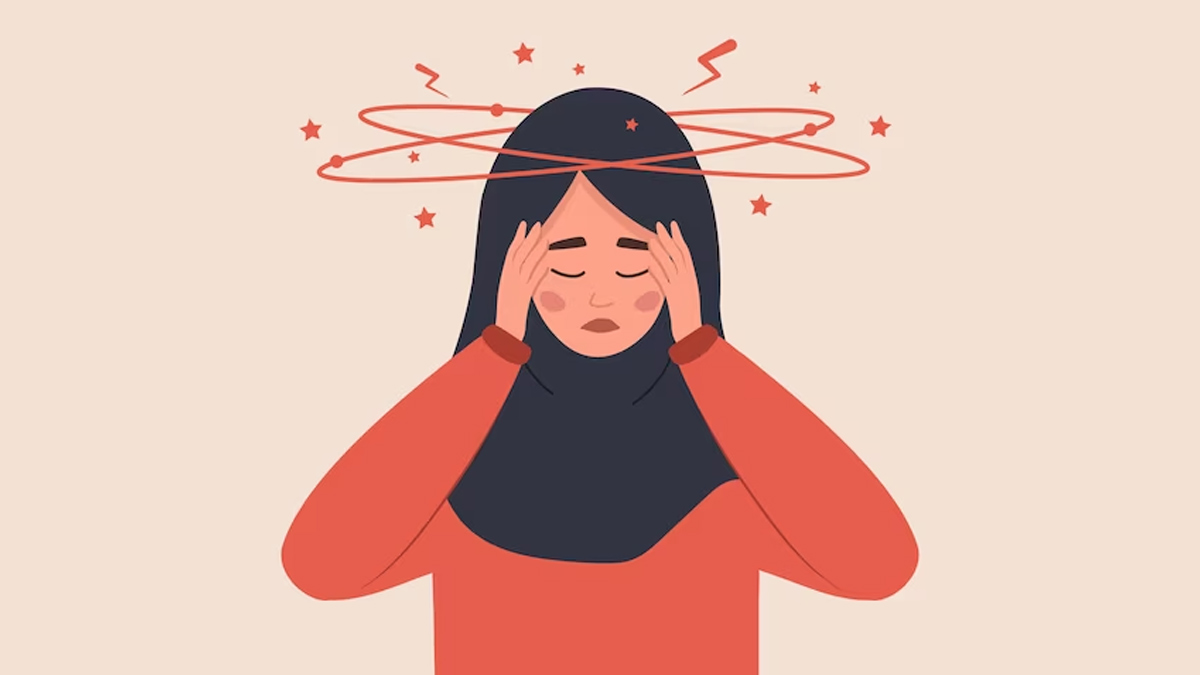
Have you ever felt lightheaded or like the room was spinning around you? These sensations can be confusing and alarming, leaving you wondering what's happening. Many people assume dizziness and vertigo are the same thing, however they describe different experiences. Understanding the difference between the two is essential for knowing when it’s just a passing sensation and when it might be a sign of something more serious. We spoke to our expert Dr Sheetal Goyal, Consultant Neurologist, Wockhardt Hospitals, Mumbai Central, who explained their differences and how to address these symptoms.
Table of Content:-
What Is Dizziness?

"Dizziness is a general term used to describe a sensation of lightheadedness, unsteadiness, or faintness, as though you might pass out or lose your balance. People experiencing dizziness may also notice other symptoms like nausea, sweating, or blurred vision," said Goyal. It can stem from a variety of causes, including dehydration, low blood pressure, anaemia, or even anxiety. Dizziness is a broad sensation and can affect individuals differently depending on the underlying condition.
According to large population-based studies, dizziness (including vertigo) affects approximately 15% to over 20% of adults every year.
Also Read: Feeling Nauseous? Try These Home Remedies To Relieve Vertigo And Dizziness
What Is Vertigo?

Vertigo, on the other hand, is a specific type of dizziness that involves the false perception that you or your surroundings are spinning or moving, even when standing still. "People often describe it as a 'whirling' or 'tilting' sensation. Along with the spinning feeling, vertigo can also be accompanied by nausea, vomiting, difficulty walking, or changes in hearing. Vertigo usually arises from issues in the inner ear or brain, added Dr Goyal.
Vertigo is most commonly linked to problems with the vestibular system in the inner ear, which controls balance, or issues within certain parts of the brain. Conditions like Benign Paroxysmal Positional Vertigo (BPPV), Meniere's disease, vestibular neuritis, or migraines are common culprits.
According to StatPearls, vertigo affects both men and women, but women are two to three times more likely to experience it than men. It is often linked to other health conditions, such as depression and cardiovascular disease. The likelihood of vertigo increases with age and varies according to the specific diagnosis.
Also Read: Dealing With Vertigo? Experts Explains The Impact And Tips To Manage Its Symptoms
When to Seek Medical Help
Both dizziness and vertigo can be unsettling, but not every instance requires immediate medical attention. However, there are specific situations when it’s essential to seek help from a healthcare provider.

For Dizziness
“If dizziness persists, worsens over time, or occurs alongside other concerning symptoms like chest pain, shortness of breath, fainting, or severe headaches, it’s time to see a doctor”, advised Dr Goyal. Persistent dizziness could indicate an underlying issue, such as an inner ear infection, blood circulation problems, or even a neurological condition. If dizziness occurs following a head injury, it’s also crucial to get evaluated to rule out a concussion or more severe trauma.
For Vertigo
Dr Goyal highlights the importance of recognising when vertigo may indicate a more significant health issue. “If vertigo is severe, occurs frequently, or lasts for a prolonged period, medical intervention is necessary,” she explained. Additionally, vertigo accompanied by symptoms, such as double vision, slurred speech, difficulty walking, or limb weakness could be a sign of a neurological emergency, such as a stroke. It’s vital to seek immediate medical care if any of these warning signs are present.
Bottomline
Dr Goyal concluded, “While dizziness and vertigo may share similarities, their differences are significant when it comes to diagnosis and treatment. Occasional dizziness or vertigo is common, but when these symptoms become persistent, affect your daily life, or are accompanied by more severe signs, it's important to seek medical advice. Identifying the underlying cause early can prevent further complications and ensure proper treatment.”
[Disclaimer: This article contains information provided by an expert and is for informational purposes only. Hence, we advise you to consult your own professional if you are dealing with any health issues to avoid complications.]
Also watch this video
Read Next
Progression of Spinal Muscular Atrophy: Expert Explains Types, Challenges, And What To Expect
How we keep this article up to date:
We work with experts and keep a close eye on the latest in health and wellness. Whenever there is a new research or helpful information, we update our articles with accurate and useful advice.
Current Version